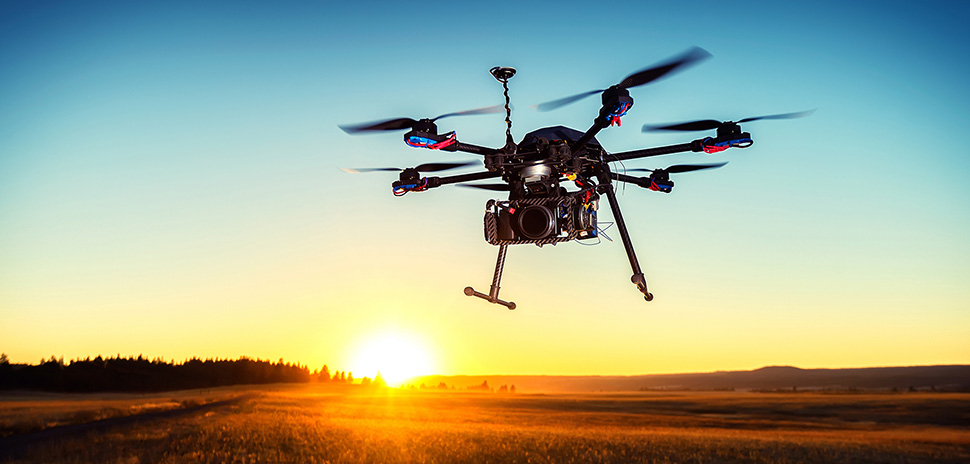![]() Every week, we do a little research of our own. We’re looking for scientists, professors, engineers, entrepreneurs—anybody, really—engaging in research and development across North Texas.
Every week, we do a little research of our own. We’re looking for scientists, professors, engineers, entrepreneurs—anybody, really—engaging in research and development across North Texas.
There’s plenty of good work being done. If you want to put R&D under your microscope, sign up for our e-newsletter.
UTA to work with manufacturer on UAVs to brighten emergencies
Emergency response at night often takes place in dimly lighted areas, but UTARI, the University of Texas at Arlilngton Research Institute, is on the case.
The institute has signed an agreement with Mineral Wells-based Newcastle Manufacturing to configure and demonstrate a network of UAVs — unmanned aerial vehicles — that can use lights in support of those nighttime operations, UTA said in a release.
UTA said that Travis Kunkel, president of the company and a former emergency medical technician himself, has a passion for both emergency responders and UAVs.
“I’ve seen first-hand the problems first responders have when arriving to the scene of an accident and using their cell phones to light the area,” Kunkel said in the release. “I thought if we could properly equip UAVs with lights, that they could become standard-issue equipment on ambulances and investigation vehicles.”
![UAVs Michael Allen of the University of North Texas Health Science Center. [Photo Courtesy UNTHSC]](https://s24806.pcdn.co/wp-content/uploads/2019/01/TICKS_web.jpg)
Michael Allen of the University of North Texas Health Science Center. [Photo Courtesy UNTHSC]
UNTHSC study examines pneumonia is ventilator-assisted surgical patients
Pneumonia is a potential threat facing surgical patients who need ventilators to breathe and detecting the bacteria responsible for the infection can be complicated, according to a release from the University of North Texas Health Science Center in Fort Worth.
That’s because bacteria that appear on cultures of the lungs — often called “normal respiratory tract flora” — are considered harmless even thought they’re not, according to a study by Michael Allen, associate professor of microbiology, immunology, and genetics at UNTHSC. The bacteria can be a sign of a problem about to begin, he said.
The study examines one reason why the source of infections for many mechanically ventilated surgical patients has been unclear, according to the release. When a culture is taken, the results might seem obvious, but confusion often develops when bacteria appear but there are no specific pathogens on the culture, the release said.
The results might imply that the flora is harmless and does not need to be treated, while the opposite might be true, Allen said.
“The culture is typically either negative and not a problem, or it lights up with horrible pathogens and is a serious problem,” Allen said. “Our data suggest that in some patients the flora in the lungs is in transition to disease or that it is susceptible to an infection. Maybe it’s not there quite yet, but it’s headed that way.”
Newman Foundation pledges $100K to TAMS program at University of North Texas
The Texas Academy of Mathematics and Sciences (TAMS) at the University of North Texas will benefit from $100,000 pledged by The Newman Foundation.
UNT, a Carnegie-ranked Tier One research university in Denton, said the gift is the largest pledge in the program’s hsitory and it will create the Newman Foundation TAMS Endowment Fund for Undergraduate Research, a permanent fund supporting research activities for TAMS students.
The Newman Foundation is led by Ken Newman and his wife, Ann. He is a 1966 graduate of UNT’s College of Business.
UNTsaid the endowment will fund annual awards for TAMS students who have expressed a high level of interest in their field of study and are chosen as Newman Summer Research Scholars to participate in the TAMS Early Summer Research Program.
Founded in 1987, the TAMS program is the first accelerated residential program of its kind, UNT said in the release, and it enables exceptionally gifted high school students to enroll in college-level classes and conduct research while simultaneously completing the first two years of college coursework and earning the equivalent of a high school diploma.
READ NEXT
R&D: UTA Professor’s Quest to Unify Storm Forecasts; UTSW Studies ‘Couch Potato’ Behavior
![]()






![Dr. Justin Lonon, vice chancellor of Dallas College, addresses the crowd at the recent Goldman Sachs 10,000 Small Businesses Dallas Graduation. [Photo: 10KSB]](https://s24806.pcdn.co/wp-content/uploads/2021/06/GoldmanSachs-10KSB-4992-970-970x464.jpg)
























